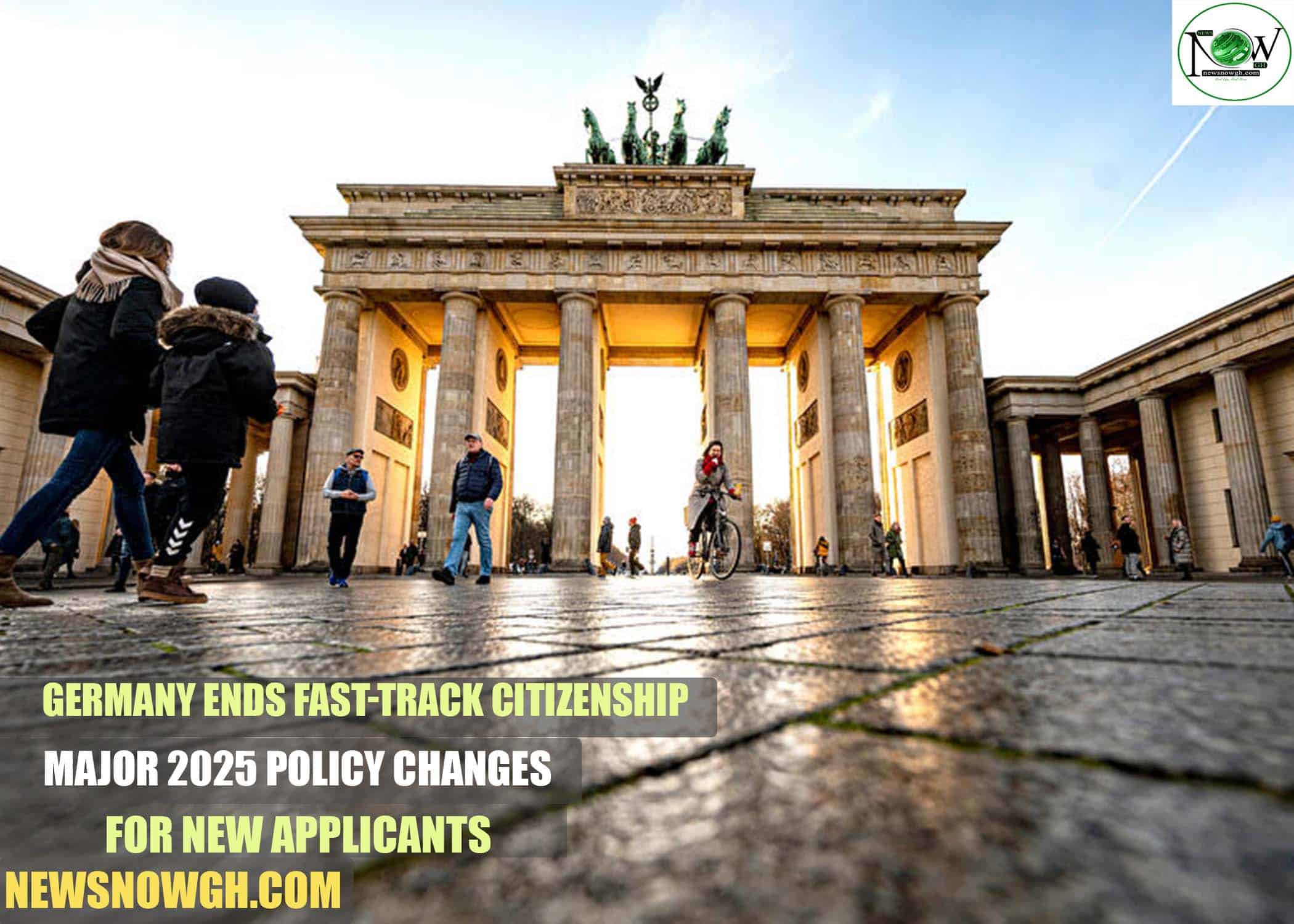¬ Germany Ends Fast-Track Citizenship: Major 2025 Policy Changes for New Applicants
Germany’s coalition government has recently announced the termination of the 3-year fast-track citizenship option for well-integrated immigrants. This decision marks a significant shift in the country’s naturalization policies. While the five-year citizenship pathway and dual citizenship rules remain intact, the new administration aims to redefine the process of gaining citizenship.
The 3-year fast-track route, introduced just a year ago, allowed highly integrated immigrants to apply for German citizenship sooner. This pathway was especially appealing to those who had spent years studying or working in Germany.
However, critics from the conservative parties, particularly the Christian Democratic Union (CDU) and the Christian Social Union (CSU), labeled it “turbo naturalization.” They argued that three years was insufficient time for full integration into German society.
New Citizenship Requirements
With the repeal of the fast-track route, Germany still offers a standard naturalization process after five years. This option remains streamlined from reforms enacted last year. To qualify, applicants must meet several requirements:
- Residency: Live in Germany for a minimum of five consecutive years.
- Language Proficiency: Demonstrate B1-level proficiency in the German language.
- Social Integration: Show evidence of integration through work, education, or community involvement.
Although the five-year path is longer than the previous fast track, it is still more accessible than the former eight-year requirement. This change reflects a modern approach to citizenship.
Dual Citizenship Remains
One significant aspect of the new policies is the continuation of dual citizenship. Prior to the 2024 reform, Germany typically did not permit dual nationality for non-EU nationals. The new law, however, allows immigrants to retain their original nationality upon becoming German citizens.
This change has been especially welcomed by communities such as the Turkish diaspora, which has long advocated for this right.
No Revocation for Dual Nationals
Another important point from the coalition agreement is that dual nationals will not face citizenship revocation, even in cases involving extremist affiliations. The CDU/CSU had previously sought laws that would enable Germany to strip dual citizens of their nationality if they supported terrorism or anti-democratic ideologies.
However, the Social Democratic Party (SPD) firmly opposed these measures. Instead, the government will explore stricter deportation options for non-citizens who threaten Germany’s constitutional values, without impacting naturalized citizens.
Implications for Immigrants
Here’s a concise overview of how these changes will impact prospective citizens:
| Policy Area | Status | Impact |
| 3-Year Fast-Track Citizenship | Abolished | No accelerated path for highly integrated individuals |
| 5-Year Citizenship Route | Still in effect | Standard path for most immigrants |
| Dual Citizenship | Remains allowed | Applicants can retain original nationality |
| Citizenship Revocation | Not pursued | Naturalized citizens will not face revocation |
Conclusion
The decision to abolish the fast-track citizenship route may disappoint many well-integrated immigrants seeking a quicker path to belonging. Nevertheless, preserving dual citizenship and the five-year residency requirement indicates progress.
These new policies aim to balance integration with national identity, striving for fairness without compromising societal values. Understanding the current pathways is crucial for immigrants considering naturalization. Thorough preparation for the application process is now more important than ever.
Follow NewsNowGh to stay updated on the latest information regarding work permits, visas, and visa-sponsored employment.


